#Prime Minister Mateusz Morawiecki
Text
Russia cut off natural gas to NATO members Poland and Bulgaria on Wednesday and threatened to do the same to other countries, using its most essential export in what was seen as a bid to punish and divide the West over its support for Ukraine.
The move, condemned by European leaders as “blackmail,” marked a dramatic escalation in the economic war of sanctions and countersanctions that has unfolded in parallel to the fighting on the battlefield.
The tactic, coming a day after the U.S. and other Western allies vowed to rush more and heavier weapons to Ukraine, could eventually force targeted nations to ration gas and could deal another blow to economies suffering from rising prices. At the same time, it could deprive Russia of badly needed income to fund its war effort.
Poland has been a major gateway for the delivery of weapons to Ukraine and confirmed this week that it is sending the country tanks. Just hours before Russia’s state energy giant Gazprom acted, Poland announced a new set of sanctions against the company and other Russian businesses and oligarchs.
Bulgaria, under a new liberal government that took office last fall, has cut many of its old ties to Moscow and likewise supported punitive measures against the Kremlin. It has also hosted Western fighter jets at a new NATO outpost on Bulgaria’s Black Sea coast.
The gas cuts do not immediately put the two countries in any dire trouble. Poland, especially, has been working for many years to line up other suppliers, and the continent is heading into summer, making gas less essential for households.
Also, Russian gas deliveries to both Poland and Bulgaria were expected to end later this year anyway.
Still, the cutoff and the Kremlin warning that other countries could be next sent shivers of worry through the 27-nation European Union. Germany, the largest economy on the continent, and Italy are among Europe’s biggest consumers of Russian natural gas, though they, too, have been taking steps to reduce their dependence on Moscow.
“It comes as no surprise that the Kremlin uses fossil fuels to try to blackmail us,” said EU Commission President Ursula von der Leyen. “Today, the Kremlin failed once again in his attempt to sow division amongst member states. The era of Russian fossil fuel in Europe is coming to an end.”
Gazprom said it shut off the two countries because they refused to pay in rubles, as President Vladimir Putin has demanded of “unfriendly” nations. The Kremlin said other countries may be cut off if they don’t agree to the payment arrangement.
Most European countries have publicly balked at Russia’s demand for rubles, but it is not clear how many have actually faced the moment of decision so far. Greece’s next scheduled payment to Gazprom is due on May 25, for example, and the government must decide then whether to comply.
Polish Prime Minister Mateusz Morawiecki told his country’s parliament that he believes Poland’s support for Ukraine — and the new sanctions imposed by Warsaw on Tuesday — were the real reasons behind the gas cutoff.
Bulgarian Prime Minister Kiril Petkov called the suspension blackmail, adding: “We will not succumb to such a racket.”
Ukrainian President Volodymyr Zelenskyy said that Russia views gas as a weapon for political blackmail and “sees a united Europe as a target.”
#news#world politics#world news#european politics#imperial russia#russia#bulgaria#poland#ap news#ap#natural gas#european union#gazprom#nato#north atlantic treaty organization#EU Commission President Ursula von der Leyen#Ursula von der Leyen#valdimir putin#fuck putin#Prime Minister Mateusz Morawiecki#mateusz morawiecki#Prime Minister Kiril Petkov#Kiril Petkov#ukrainian president volodymyr zelensky#volodymyr zelensky#2022
14 notes
·
View notes
Text
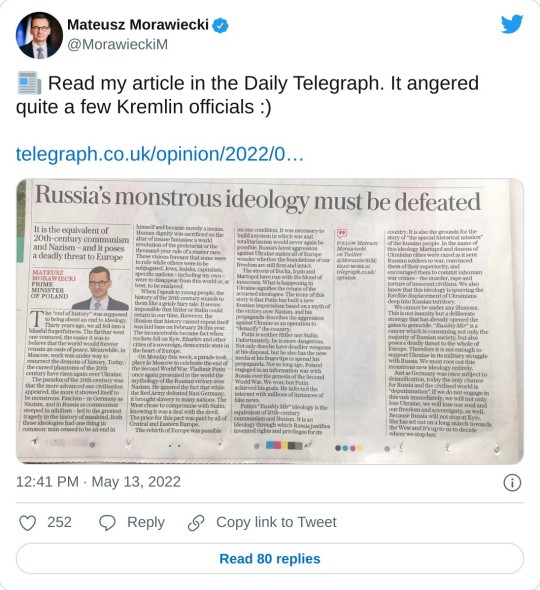
#polish prime minister#mateusz morawiecki#russian war#daily telegraph#russia ukraine war#putin's war#criminal war#war#help for ukraine#ukraine#russian agression#russian nazism#russia#stop war#stop russia#stop invasion#stop putin#criminal putin#putin#fuck putin
4 notes
·
View notes
Text

0 notes
Text
Covid-19 may return in autumn warns prime minister – The First News
Covid-19 may return in autumn warns prime minister – The First News
Leszek Szymański/PAP
Covid-19 could return in the autumn, Mateusz Morawiecki, the Polish prime minister, has cautioned while urging people to comply with health regulations and get vaccinated.
“I will receive a fourth dose of the Covid-19 vaccine within several weeks,” Morawiecki said in a podcast interview on Monday.
He said he hoped there would be no need to re-introduce pandemic restrictions…

View On WordPress
#autumn#Coronavirus#covid 19#COVID19#Epidemic#infection#Mateusz Morawiecki#minister#News#pandemic#Poland#Prime#return#Vaccination#vaccine#virus#warns
0 notes
Text
On Tuesday, Poland summoned Ukraine's ambassador over comments made by President Volodymyr Zelensky at the UN.
He said some nations had feigned solidarity with Ukraine, which Warsaw denounced as "unjustified concerning Poland, which has supported Ukraine since the first days of the war".
Poland's prime minister, Mateusz Morawiecki, announced the decision to no longer supply Ukraine with weapons in a televised address on Wednesday after a day of rapidly escalating tensions between the two countries over grain imports.
"We are no longer transferring weapons to Ukraine, because we are now arming Poland with more modern weapons," Mr Morawiecki said.
The grain dispute began after Russia's full-scale invasion of Ukraine all but closed the main Black Sea shipping lanes and forced Ukraine to find alternative overland routes.
That in turn led to large quantities of grain ending up in central Europe.
Consequently, the European Union temporarily banned imports of grain into five countries; Bulgaria, Hungary, Poland, Romania and Slovakia to protect local farmers, who feared Ukrainian grain was driving down the prices locally.
The ban ended on 15 September and the EU chose not to renew it, but Hungary, Slovakia and Poland decided to keep on implementing it.[...]
Earlier this week, Ukraine filed lawsuits to the World Trade Organisation (WTO) against those countries over the bans, which it said were a violation of international obligations.
Ukraine's Economy Minister Yulia Svyrydenko said that "it is crucially important for us to prove that individual member states cannot ban imports of Ukrainian goods".
But Poland said they would keep the ban in place, and a "complaint before the WTO doesn't impress us".
Mr Morawiecki said they would increase the number of banned products from Kyiv if Ukraine escalates the grain dispute. Poland's foreign ministry added that "putting pressure on Poland in multilateral forums or sending complaints to international courts are not appropriate methods to resolve differences between our countries".
Poland's the last of the 3 disputing Ukrainian grain that I would have expected to take it to this level [21 Sep 23]
#seems like an undeniable turning point#breaking some sorta seal#Poland's the big dog of the small dogs so#figured hungary n maybe slovakia would#point of pride it seems#thought pis would take more pride in shooting the muscovites#guess not enough return on investment so they figured theyd inhouse the process
66 notes
·
View notes
Text


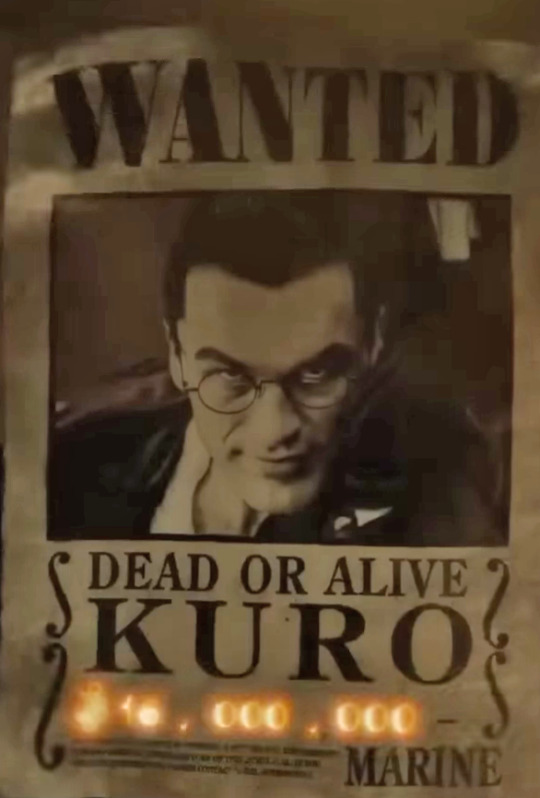
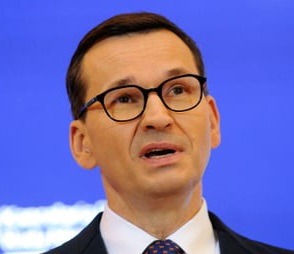
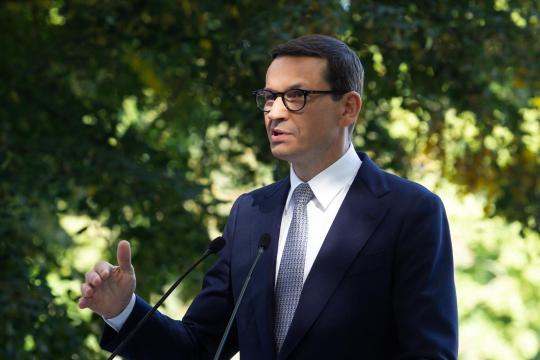
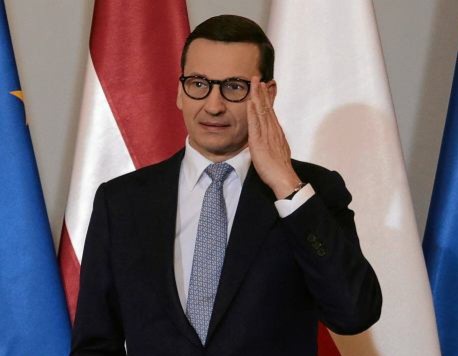
It's killing me how Kuro from Netflix adaptation of One Piece reminds me so much Mateusz Morawiecki- Polish Prime Minister XD
70 notes
·
View notes
Text

remember with the power of drawing you can make fursona for everyone
this is a Mateusz Morawiecki previous Poland prime minister
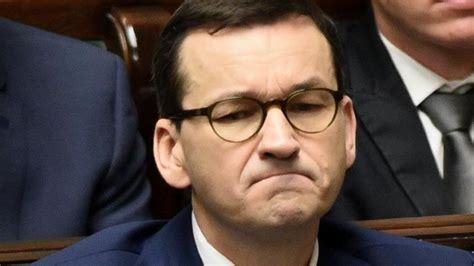
19 notes
·
View notes
Text
Poland ramps up Ukraine criticism ahead of elections
“Ukraine is behaving like a drowning person clinging to anything available,” Duda told Polish journalists in New York on Tuesday. “A drowning person is extremely dangerous, capable of pulling you down to the depths . . . simply drown the rescuer.”
The president’s unflattering remarks came after Poland led a coalition of central and eastern European countries that extended unilateral curbs on imports of Ukrainian foodstuffs despite the EU agreeing to lift them on Friday.
“We have the right to defend ourselves against harm being done to us,” Duda said.
Poland calls on the EU to extend the embargo on Ukraine grain to protect farmers
Prime Minister Mateusz Morawiecki said he has requested that the European Commission, the EU’s executive, extend the ban on the entry of Ukraine corn, wheat, sunflower and rapeseed or else “we will do it ourselves because we cannot allow for a deregulation of the market.”
Poland summons Ukrainian ambassador over Zelenskiy remarks, Kyiv calls for calm
Jablonski also told Ambassador Vasyl Zvarych that "putting pressure on Poland in multilateral forums or sending complaints to international tribunals are not appropriate methods of resolving disputes between our countries".
Poland Signals It Will Stop Aid for Ukrainian Refugees Next Year
Poland will no longer send weapons to Ukraine, says PM, as grain dispute escalates
you know how the famous saying goes: the ukrainian question ends when the polish elections begin
48 notes
·
View notes
Text
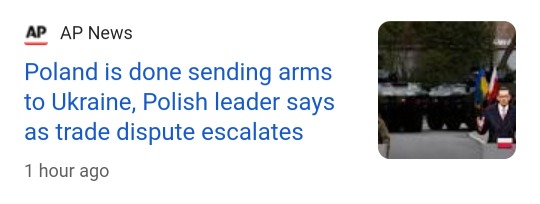
Poland is done sending arms to Ukraine, Polish leader says as trade dispute escalates
WARSAW, Poland (AP) — Poland’s prime minister said his country is no longer sending arms to Ukraine, a comment that appeared aimed at pressuring Kyiv and put Poland’s status as a major source of military equipment in doubt as a trade dispute between the neighboring states escalates.
Prime Minister Mateusz Morawiecki said in an interview late on Wednesday that Poland is no longer transferring weapons to Ukraine. He made the comment as his populist party faces pressure from a far-right party in a national election on Oct. 15. The far-right party, Confederation, says Poland is not getting the gratitude it deserves for arming Ukraine and accepting its refugees.

with friends like these....
#poland#ukraine#irl news#irl events#russian invasion#russian aggression#russian invasion of ukraine#russia ukraine war#russo ukrainian war#mateusz morawiecki#warsaw#grain row
47 notes
·
View notes
Text
By Agnieszka Pikulicka-Wilczewska
June 14, 2023
WARSAW, June 14 (Reuters) - Abortion rights supporters marched through several cities in Poland on Wednesday after the death of a pregnant woman whose family believe she could have survived if she had been offered a termination.
Protesters chanted "stop killing us" as they marched through the capital Warsaw towards the health ministry headquarters, some carrying placards that said "We want doctors, not missionaries" and "Hell for women," a common slogan used to convey how the measure affects those who are carrying an unwanted or dangerous pregnancy.
Poland's anti-abortion laws, among the strictest in Europe, have provoked mass protests in recent years and the death of the 33-year-old named as Dorota in May has stoked anti-government sentiment among many liberal Poles ahead of elections due in October or November.
In 2021, the nationalist government of Prime Minister Mateusz Morawiecki put into effect a constitutional court decision banning terminations of pregnancies with foetal defects, as conservative policies increasingly take root in one of Europe's most devout Catholic countries.
Abortion rights activists have said that there were at least five cases of pregnant women dying whose families came out to the media, blaming the restrictions on abortion for their deaths.
Last month, Dorota died of septic shock in a hospital after her water broke in the 20th week of pregnancy. Her husband said nobody informed them of the option to induce a miscarriage, even though the child had very low chances of survival.
In 2021, a 30-year-old woman in the 22nd week of pregnancy, named Izabela, also died of septic shock after doctors waited for her unborn baby's heart to stop beating.
"We've had enough ... we protested when we found out about the death of Izabela almost two years ago and at the time we shouted 'not one more,'" Agnieszka Czerederecka, a founder of the Women's Strike movement in Warsaw, told Reuters. She added that there were protests in around 80 cities.
Jaroslaw Kaczynski, the ruling Law and Justice (PiS) party leader said that by law women could have abortions if there was any threat to their life or health.
"There is no such issue. It's been made up," he said in response to journalists' questions on Wednesday, accusing critics of the policy of "propaganda" and creating an "imaginary reality."
However, critics say that since the Constitutional Tribunal ruling, doctors have been more reluctant to perform terminations even in such cases.
A poll by IBRiS for private Radio Zet showed this week over 70% of Poles believe the strict abortion rules constitute a potential threat to women's life and health.
"I hope the law will change and I will not be afraid to get pregnant in Poland," said Joanna Jędrasiak, 36, an economist.
"I would like to have children very much, and to experience pregnancy, give birth to a healthy child, without the kind of problems that a few women have had and whom we commemorate here today."
Reporting by Karol Badohal, Agnieszka Pikulicka-Wilczewska and Anna Wlodarczak-Semczuk; Editing by Aurora Ellis
52 notes
·
View notes
Text
WARSAW, Poland (AP) — Polish opposition leader Donald Tusk declared the beginning of a new era for his country after opposition parties appeared to have won enough votes in Sunday’s election to oust the ruling populist party.
That party, Law and Justice, has bickered with allies and faced accusations of eroding rule of law at home in its eight years in power. It appeared that voters were mobilized like never before, voting in even greater numbers than when the nation ousted the communist authorities in 1989.
If the result predicted by an exit poll holds, Law and Justice won but also lost. It got more seats than any other party but not enough to build a government and pass laws in the legislature.
The Ipsos exit poll suggested that Law and Justice obtained 200 seats. The far-right Confederation got 12 seats, a showing the party said was a defeat.
It also showed that three opposition parties have likely won a combined 248 seats in the 460-seat lower house of parliament, the Sejm. The largest of the groups is Civic Coalition, led by Tusk, a former prime minister.
“I have been a politician for many years. I’m an athlete. Never in my life have I been so happy about taking seemingly second place. Poland won. Democracy has won. We have removed them from power,” Tusk told his cheering supporters.
“This result might still be better, but already today we can say this is the end of the bad time, this is end of Law and Justice rule,” Tusk added.
Law and Justice leader Jaroslaw Kaczynski acknowledged that the outcome was uncertain for his party. He told supporters at his headquarters that his party’s result, at nearly 37% of the vote, according to the exit poll, was a success, making it the party to win the most votes for three parliamentary elections in a row. But he also acknowledged it might not be able to keep power.
“We must have hope and we must also know that regardless of whether we are in power or in the opposition, we will implement this (political) project in various ways and we will not allow Poland to be betrayed,” Kaczynski said.
If the result holds, and Law and Justice is the single party with the most seats, then it would get the first chance to try to build a government.
It falls to President Andrzej Duda, who is an ally of Law and Justice, to tap a party to try to form a government.
Prime Minister Mateusz Morawiecki said on Polsat News that Duda “will entrust the mission of forming the government to the winning party and in this first step we will certainly try to build a parliamentary majority.”
Three opposition parties, Tusk’s Civic Coalition, Third Way and the New Left, ran on separate tickets but with the same promises of seeking to oust Law and Justice and restore good ties with the European Union.
Wlodzimierz Czarzasty, a leader of the Left party, vowed to work with the others to “create a democratic, strong, reasonable and predictable government.”
Katarzyna Pelczynska-Nalecz, the head of election campaign for Third Way, called it a “huge day for our democracy.”
“There is a lot of work to do for all of us, and it’s going to be a huge challenge,” she said, adding: “we are very satisfied and full of hope that things will be much better in Poland in the days, months and years to come.”
Votes were still being counted and the state electoral commission says it expects to have final results by Tuesday morning.
At stake are the health of the nation’s constitutional order, its legal stance on LGBTQ+ rights and abortion, and the foreign alliances of a country that has been a crucial ally to Ukraine after Russia launched its full-scale invasion.
Law and Justice has eroded checks and balances to gain more control over state institutions, including the courts, public media and the electoral process itself.
During the campaign many Poles described the vote as the most important one since 1989, when a new democracy was born after decades of communism.
Turnout Sunday appeared to be even higher than the 63% of those who voted in 1989 to oust the communists.
“It seems that we have broken a record,” said Sylwester Marciniak, the head of the state electoral commission.
Despite many uncertainties ahead, what appeared certain was that support for the ruling party has shrunk since the last election in 2019 when it won nearly 44% of the vote, its popularity dented by high inflation, allegations of cronyism and bickering with European allies.
If the result holds, it marks a sharp defeat for a ruling party that adopted divisive policies at home, often pushing laws through without trying to build consensus.
Others saw economic threats in the way the party has governed and believe that high social spending has helped to fuel inflation.
There is also a high level of state ownership in the Polish economy, and the governing party has built up a system of patronage, handing out thousands of jobs and contracts to its loyalists.
A political change could open the way for the EU to release billions of euros in funding that has been withheld over what the EU viewed as democratic erosion.
The fate of Poland’s relationship with Ukraine was also at stake. The Confederation party campaigned on an anti-Ukraine message, accusing the country of lacking gratitude to Poland for its help in Russia’s war. Its poor showing will be a relief for Kyiv.
Around 29 million Poles from age 18 were eligible to vote. They chose 460 members of the lower house, or Sejm, and 100 for the Senate for four-year terms.
A referendum on migration, the retirement age and other issues was held simultaneously. Some government opponents called on voters to boycott the referendum.
More than 31,000 voting stations operated across Poland, while there were more than 400 voting stations abroad. In a sign of the emotions generated by the vote, more than 600,000 Poles registered to vote abroad.
Individual parties need to get at least 5% of votes to win seats in parliament, while coalitions need at least 8% of votes.
20 notes
·
View notes
Text
Prime Minister Justin Trudeau says he voiced “concerns” about LGBTQ2 rights and a democratic backslide in Poland on Friday amid criticisms he has not said enough as Polish Prime Minister Mateusz Morawiecki visited Canada.
“As friends, Canada and Poland will always have frank conversations on the things we’re doing together and places where we raise concerns,” Trudeau told reporters during a joint press conference. “I certainly raised concerns that we have around some of the reports coming out of Poland around LGBT rights, around democracy.”
He added the two countries would continue to work together, but Canada would stand up for “the values that matter as well.”
Two years ago, Morawiecki’s government limited abortions to cases where a pregnancy resulted from a criminal act or posed a serious health risk. The party has called out LGBTQ rights as “an attack on the family and children” and has allowed municipalities and regions to declare themselves “LGBT-free zones.”
Morawiecki defended his government’s moves on Friday, stressing they focused on “nurturing families, supporting families” and that it “is misunderstood by some” as being discriminatory. [...]
Continue Reading.
Tagging: @politicsofcanada
#cdnpoli#Justin Trudeau#Foreign Policy#Poland#queerphobia#reactionary politics#abortion rights#reproductive rights
36 notes
·
View notes
Text
The nightmare is (almost) over in Poland! 🇵🇱
The ruling PiS (Law and Justice Party) did not win enough seats in the Sejm in October's national election to form another government.
Poland's PiS President Andrzej Duda tried to slow down the departure of his Prime Minister Mateusz Morawiecki by dragging out the transfer of power. Duda even asked Morawiecki to try to form a new government despite the obvious mathematical impossibility of doing so.
But time ran out for PiS. Morawiecki lost a vote of confidence in a 10+ hour meeting of the Sejm on Monday. With 456 members voting and 229 needed for a governing majority, Morawiecki lost by a margin of 266 to 190.
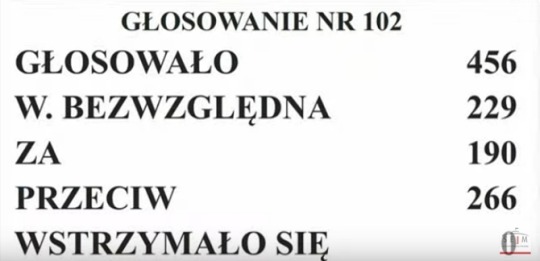
After that fiasco, a three party pro-democracy coalition led by former Prime Minister Donald Tusk won a vote of confidence by 248 to 201.
After nine years out of power, Donald Tusk is back — securing the support of the Polish parliament on Monday evening to head a new government.
The vote was 248 in favor and 201 against, cementing his return nearly two months after a coalition of opposition parties led by the former European Council president delivered a surprising win in the October 15 national election.
“I want to thank the Polish people,” Tusk told cheering MPs. “Thank you Poland, this is a great day, not for me, but for all those who for these long years deeply believed that it will still be better, that we will chase away the darkness, chase away the evil.”
The new coalition government officially takes power on Wednesday.
I don't understand much Polish, but went out of my way to see Barbara Nowacka's speech in the debate leading to the votes. She had no qualms about calling out members of the outgoing government by name.
The PiS losers could only listen grimly as she excoriated them and compared them with the autocratic Viktor Orbán régime in Hungary.
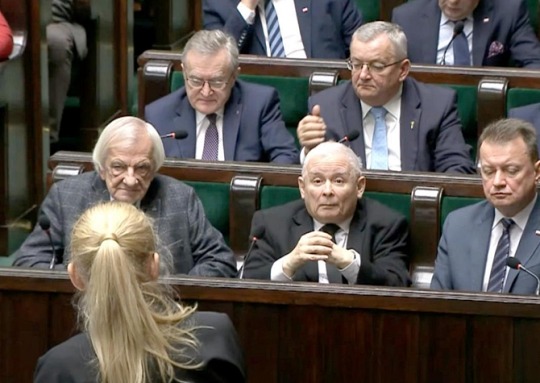
Pani Nowacka will likely be the new Minister of Education in Poland.
#poland#polska#donald tusk#mateusz morawiecki#pis#sejm#no confidence vote#winter came for the house pis#barbara nowacka#andrzej duda#victory for democracy#wotum nieufności#żegnaj PiS!
10 notes
·
View notes
Text
Daily Wrap Up November 15, 2022
Under the cut:
Poland has no conclusive evidence showing who fired the missile that caused an explosion in a village near the Ukrainian border, the president said on Wednesday, adding that Warsaw remained calm in the face of what he described as a "one-off" incident. Two people were killed in the explosion in Przewodow, about 6 km (3.5 miles) from the border with Ukraine, firefighters said. Media reports said the strike hit a grain-drying facility.
Poland is likely to request consultations under NATO's Article 4 after a missile, reportedly Russian-made, struck Polish territory near the border with Ukraine, and raise the issue at a U.N. Security Council meeting on Wednesday, officials said.
Polish Prime Minister Mateusz Morawiecki said that evidence suggests the missile that landed in Przewodów in eastern Poland was a "single act" and there is no evidence of further missiles. However, Poland is increasing their military readiness, Morawiecki said Tuesday during his address in Warsaw following the Council of Ministers meeting.
Russia launched its biggest wave of missile attacks on Ukrainian cities in more than a month on Tuesday – hours after Ukrainian President Volodymr Zelensky proposed a peace plan in front of world leaders at the G20 summit in Indonesia. At least a dozen cities and districts in Ukraine were targeted by Rusisan strikes, according to a CNN analysis of the missile strikes. The wave of strikes appears to be the largest since October 10, when Russia stepped up its campaign to destroy electricity, water and gas infrastructure across Ukraine. (This was the attack that led to the missile striking Poland.)
“Poland has no conclusive evidence showing who fired the missile that caused an explosion in a village near the Ukrainian border, the president said on Wednesday, adding that Warsaw remained calm in the face of what he described as a "one-off" incident.
Two people were killed in the explosion in Przewodow, about 6 km (3.5 miles) from the border with Ukraine, firefighters said. Media reports said the strike hit a grain-drying facility.
"We do not have any conclusive evidence at the moment as to who launched this missile ... it was most likely a Russian-made missile, but this is all still under investigation at the moment," Andrzej Duda told reporters.
The Polish foreign ministry had earlier said that a Russian-made rocket had fallen on the village.
Duda said that it was very likely that Poland would request consultations under Article 4 of the NATO military alliance following the blast.
"Our ambassador will be attending the meeting of the North Atlantic Council tomorrow at 10 a.m. at NATO headquarters ... it is highly likely that the ambassador will request the activation of Article 4, or allied consultations," he said.
Duda spoke after Prime Minister Mateusz Morawiecki said that Poland would increase surveillance of its airspace following the incident.
"We decided to increase the combat readiness of selected units of the Polish armed forces, with particular emphasis on airspace monitoring," Morawiecki said.”-via Reuters
~
“Poland is likely to request consultations under NATO's Article 4 after a missile, reportedly Russian-made, struck Polish territory near the border with Ukraine, and raise the issue at a U.N. Security Council meeting on Wednesday, officials said.
Two people were killed in an explosion in a village 6 kilometres (3.5 miles) from the border, with Polish President Andrzej Duda saying that Poland had no conclusive evidence showing who fired the missile.
The incident happened hours after President Volodymyr Zelenskiy outlined to leaders of G20 nations his peace plan for Ukraine, and after Russia unleashed what Kyiv said was the heaviest wave of missile strikes in nearly nine months of war.
The United States and its NATO allies are investigating the incident in Poland, but early information suggests it may not have been caused by a missile fired from Russia, U.S. President Joe Biden said.
Russia's defence ministry denied the reports that Russian missiles hit the Polish territory.
Duda said that he has informed NATO Secretary General Jens Stoltenberg and Biden that it is "highly probable" that the Polish ambassador to NATO "will request to invoke Article 4, that is consultations among the allies."
Stoltenberg will hold urgent talks on Wednesday with alliance ambassadors over the incident, a spokeswoman and diplomats said on Tuesday.
According to Article 4 of the military alliance's founding treaty, members can bring any issue of concern, especially related to security, for discussion, allowing for more time to determine what steps to take.
If it is determined that Moscow was to blame for the blast, it could trigger NATO's principle of collective defense known as Article 5, in which an attack on one of the Western alliance's members is deemed an attack on all, starting deliberations on a potential military response.
"All the leaders with whom I spoke with today assured me of allied support, inclusive of upholding all the provisions of (NATO's) Art. 5," Duda said on Twitter. "We will consider this matter together."
Poland will also raise the matter at the United Nations Security Council meeting on Wednesday, Krzysztof Szczerski, Poland's ambassador to the United Nations, said.
"On Wednesday, at the afternoon session of the U.N. Security Council, I will present the Polish position on the current situation," Szczerski said on Twitter.”-via Reuters
~
“Polish Prime Minister Mateusz Morawiecki said that evidence suggests the missile that landed in Przewodów in eastern Poland was a "single act" and there is no evidence of further missiles.
However, Poland is increasing their military readiness, Morawiecki said Tuesday during his address in Warsaw following the Council of Ministers meeting.
"We decided to increase the combat readiness of selected units of the Polish armed forces, with particular emphasis on airspace monitoring," Morawiecki said, explaining that “airspace monitoring is and will be carried out in an enhanced manner together with our allies."
Morawiecki added that Poland is conducting thorough analysis and consultations with its allies regarding the potential use of Article 4 of the NATO Treaty — with his address echoing the caution and calm urged by other Polish officials.
Earlier, the Polish foreign ministry said a "Russian-made missile" had landed in the town near the Ukrainian border and killed two people.”-via CNN
~
Russia launched its biggest wave of missile attacks on Ukrainian cities in more than a month on Tuesday – hours after Ukrainian President Volodymr Zelensky proposed a peace plan in front of world leaders at the G20 summit in Indonesia.
Air raid sirens sounded out across Ukraine shortly after its leader outlined a 10-point plan including the withdrawal of Russian troops and the restoration of Ukraine’s territorial integrity.
The strikes targeted power infrastructure in several regions of the country, leaving more than seven million Ukrainians without power and the supply of electricity in a critical condition, according to senior Ukrainian officials.
The deputy head of the Ukrainian Presidential Office, Kyrylo Tymoshenko, said that 15 facilities of Ukraine’s energy infrastructure had been damaged during the Russian missile strikes, but Ukrainian air defenses had shot down 70 of more than 90 missiles fired at Ukraine.
Two missiles or rockets also reportedly hit a farm in Poland near the border with Ukraine, killing two people, according to Polish media. It is unclear where the projectiles came from, but they landed roughly the same time as a Russian missile attack on western Ukraine.
Two projectiles reportedly hit Poland around the same time as the Russian onslaught in Ukraine, with Polish media showing an image of a deep impact and upturned farm vehicle at the site, near the town of Przewodow.
A government spokesman said that Prime Minister Mateusz Morawiecki has convened the Committee of the Council of Ministers for National Security and Defense Affairs...
At least a dozen cities and districts in Ukraine were targeted by Rusisan strikes, according to a CNN analysis of the missile strikes. The wave of strikes appears to be the largest since October 10, when Russia stepped up its campaign to destroy electricity, water and gas infrastructure across Ukraine.
In a video message posted to Telegram on Tuesday evening local time, Zelensky said that 85 missile strikes had been launched against Ukraine so far, and warned there may be more to come.
“We can see what the enemy wants, they will not succeed,” he said. “We may yet have 20 more strikes, please look after yourselves, stay in shelter for some time.”
In the capital, Kyiv, the city military administration said that one person had been killed. Two explosions had been heard, it added, instructing residents to remain in shelters. It said four missiles had been shot down.
Kyiv mayor Vitaliy Klitschko then said there had been a third strike. “Another hit in Pechersk district of Kyiv city. A high-rise building,” Klitschko said.
Power supplies were disrupted to several Ukrainian regions as a result of the missile strikes.
State power supplier Ukrenergo said the Russians were “trying to turn off the lights in the country again.”
“The attack is still ongoing, we cannot yet estimate the full extent of the damage, there are strikes on our infrastructure in all regions of the country, but the most difficult situation is in the northern and central regions,” it added.
In his video message, Zelensky said that authorities are working to restore power. “We will withstand,” he said.
In addition the country “is currently experiencing a major internet disruption,” according to Netblocks, which tracks cybersecurity and connectivity around the world, with connectivity at 67% of previous levels.
Neighboring Moldova also suffered power cuts following the Russian strikes on Ukraine, Moldovan Deputy Prime Minister and Infrastructure Minister Andrei Spinu said on Tuesday.
Spinu said in a post on his Telegram account that “following Russia’s bombardment of the Ukrainian power system,” one of the power lines carrying electricity to Moldova has been disconnected. Authorities are working to restore the connection to the line, which was not damaged but was disconnected as a safety measure, he added.
83 notes
·
View notes
Text
[Notes From Poland receives funding from the NED]
A large anti-government protest has taken place in Warsaw organised by the national-conservative Law and Justice (PiS) party, which was removed from office last month after eight years in power.
PiS figures claimed 300,000 people attended amid cold winter temperatures. However, city hall, which is controlled by the centrist Civic Platform (PO), the largest party in Poland’s new ruling coalition, announced that it estimated the figure to be 35,000.
Speaking to the crowd, PiS chairman Jarosław Kaczyński declared that the new government, led by PO leader Donald Tusk, is implementing a “European plan” to “liquidate our homeland as a state” and “subordinate” it.
“We are defending Poland against the return of German imperialism and against this ideological misery,” he continued.[...]
“There was supposed to be the rule of law, and there is lawlessness,” said Mateusz Morawiecki, who served as PiS prime minister until last month. “There was supposed to be Europe, and there is Belarus.”
11 Jan 24
23 notes
·
View notes